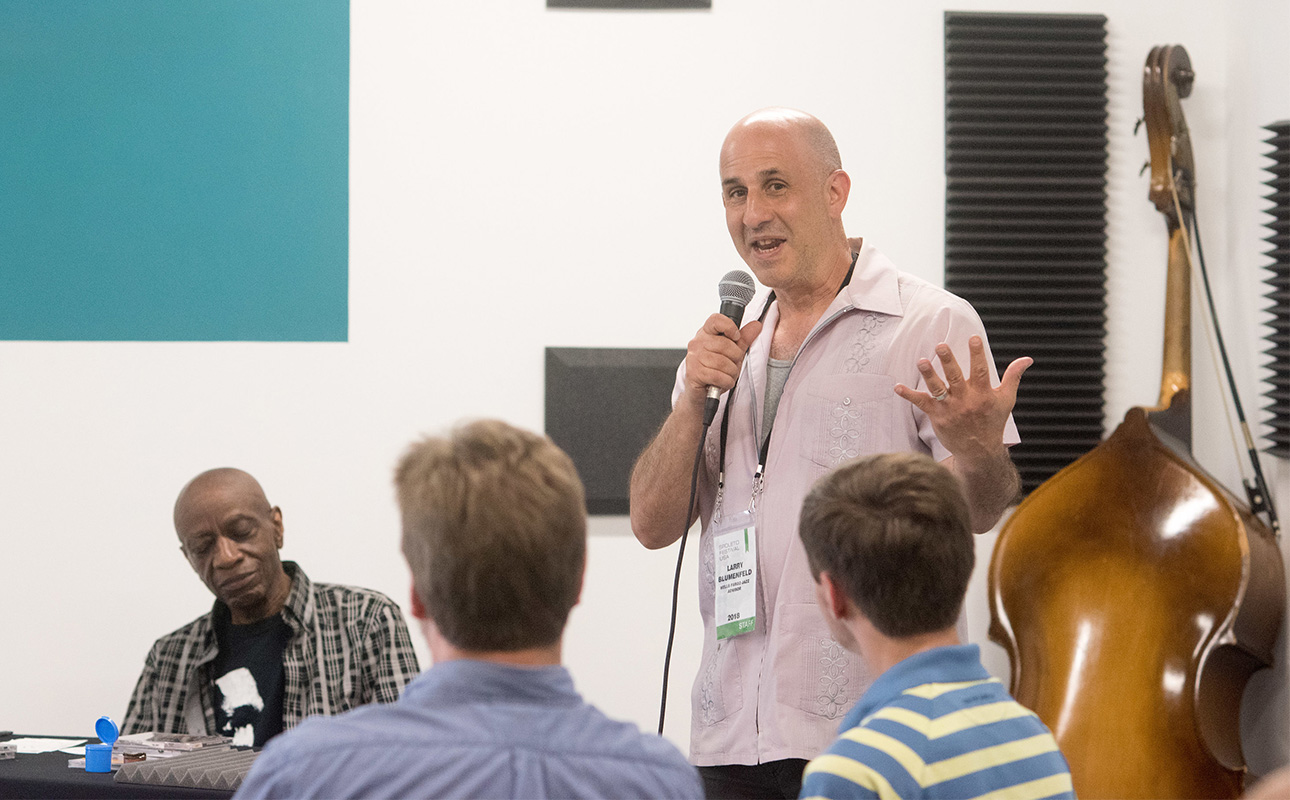The Wells Fargo Jazz Series at Spoleto 2024 begins next Sunday with a spectacular Cistern Yard performance by two incomparable jazz musicians— Terri Lyne Carrington and Dianne Reeves (May 26). As the series curator, I believe jazz plays an integral role at Spoleto as an art form that traces a remarkable story, and that prizes personalized narratives. Jazz as a medium is tailor-made for telling new tales and reframing old ones.
Drummer Terri Lyne Carrington earned a full scholarship to Boston’s Berklee College of Music at age 11. Such precocious brilliance animated one of jazz’s most fascinating career stories, including high-profile work with stars like pianist Herbie Hancock, Dizzy Gillespie, and Stan Getz among many others. Through the title of her most recent Grammy-award winning album New Standards Vol. 1, Carrington refers not just to the largely untold history of female jazz composers, but also to her mission—back at her alma mater—as founder and artistic director of the Berklee Institute of Jazz and Gender Justice, which takes as its motto: “Jazz without patriarchy.”
Another celebrated percussionist (and singer), Pedrito Martinez collaborated with the likes of Wynton Marsalis, Paul Simon, and Bruce Springsteen, but not before he soaked in the sounds of his Cayo Hueso neighborhood, in Havana, Cuba: the blend of flute, violin, and percussion forged by classic charanga bands; the modern dance music of a then-burgeoning timba scene; and the African rituals transplanted via religious ceremonies. He’d often ditch school for ceremonies. “Instead of keeping classroom notes, I’d write down the chants and rhythms I heard,” he told me. “I felt like I had entered a paradise I could not have imagined.” His Echoes of Africa performance (June 7, Cistern Yard), will reveal this paradise, and the one he’s still inventing.
Born in Paris and raised in Lebanon, composer and violinist Layale Chaker has braided disparate histories since her youth. Her jazz series residency (May 27 & 28, Charleston Music Hall) with her quintet, Sarafand, weaves tales through two programs— Inner Rhyme refracts a lineage of Arabic poetry through the lenses of contemporary classical music, maqam scales, and jazz; Radio Afloat imagines a radio lost at sea, whose transmissions speak of intersecting personal and political destinies.
Jazz has long reclaimed and revised histories. Alto saxophonist Miguel Zenón arrived in the U.S. nearly 30 years ago from San Juan, Puerto Rico, with dreams of sounding like Charlie Parker, bebop’s famous pioneer. Later, he felt compelled to revisit his roots. Just as Parker and his contemporaries rewrote the Great American Songbook, improvising new stories across its bar lines, Zenón now reimagines Latin American boleros—songs of love, loss, and nostalgia—through modern jazz’s language. Growing up in Caracas, Venezuela, pianist Luis Perdomo—Zenón’s duo partner for El Arte del Bolero (June 6-8, Dock Street Theatre)—learned these same songs. He hears their new versions as timeless, “like B.B. King singing the blues.”
“A history of a people has been hushed,” Gullah cultural preservationist Ron Daise says at the start of the album, Lowcountry, “only a few sing the old songs.” Trumpeter Matt White, chair of jazz studies at the University of South Carolina, knew little about Gullah culture when he began making field recordings of descendants of enslaved West Africans, who “line and raise” melodies, mostly at Praise House services. Lowcountry: South Carolina Music in the Gullah Tradition (June 2, Cistern Yard), presents a 23-strong collective, assembled by White and drummer Quentin Baxter, a Charlestonian of Gullah descent, and includes saxophonist Chris Potter, a modern-jazz master who grew up in South Carolina. They sing the old songs, rendered as new.
Sometimes jazz tells the stories we need to hold hope in our hearts. Three days after the September 11 terrorist attacks, I left my Brooklyn home, tracing backward the trail of thick smoke blown across the East River, to hear saxophonist Charles Lloyd at the Blue Note in Greenwich Village. Two weeks earlier, I had interviewed Lloyd on a park bench in the shadow of the now-gone Twin Towers. He described his compositions as “tenderness sutras,” and his performances as rituals offered in the face of conflict and complacency. More than 20 years later, nearly six decades after being named DownBeat’s Jazz Artist of the Year, he again feels unsettled by the state of the world. His answer? The stories told— gently, wordlessly—by Charles Lloyd’s Sky Quartet (May 31, Sottile Theatre).
Join us and discover their stories at the 2024 jazz series.
Larry Blumenfeld
Larry Blumenfeld is Jazz Curator for Spoleto Festival USA. He has written regularly about music for The Wall Street Journal since 2004, and is editorial director for Chamber Music America.

